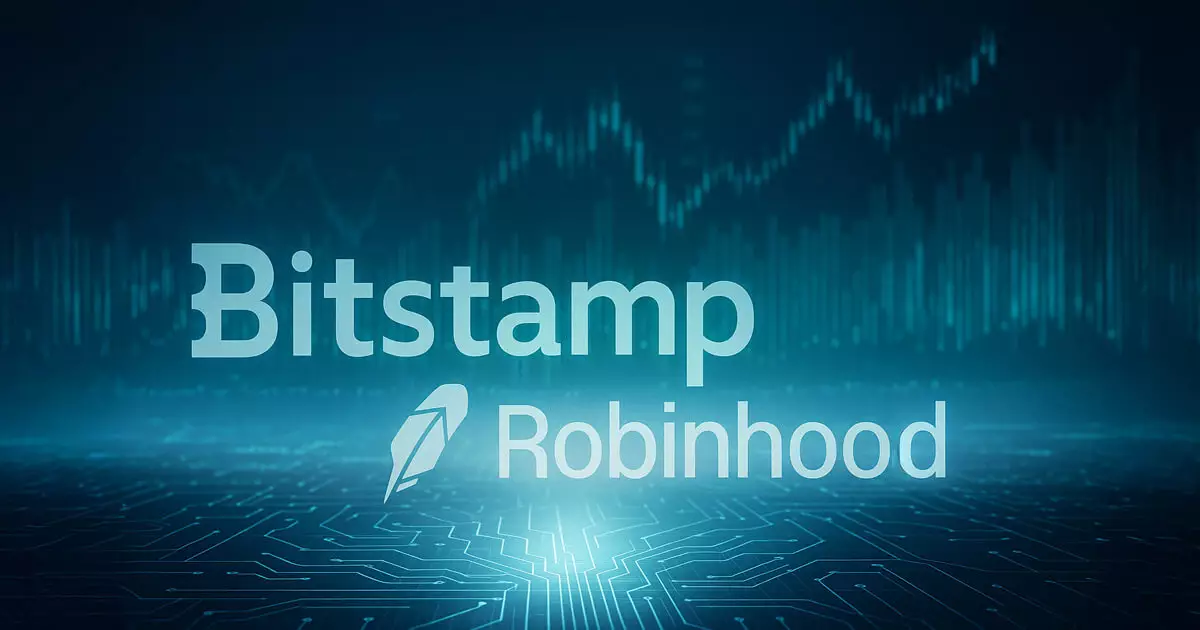In a bold move that underscores its ambition and resilience, Robinhood has successfully acquired Bitstamp for $200 million after a year of anticipation. This acquisition is not just a financial transaction; it marks a significant turn in the narrative for Robinhood, transitioning it from a U.S.-centered fintech player to a potential global behemoth in the cryptocurrency space. By integrating Bitstamp’s robust infrastructure, Robinhood can leverage more than 50 licenses across various jurisdictions, positioning itself strategically at a time when regulatory clarity is becoming a critical factor for crypto operators worldwide.
The seamless entry into numerous markets—especially Europe—could reshape the landscape, as Robinhood sidesteps the lengthy and often convoluted regulatory processes typically involved in obtaining such approvals. This acquisition is about more than just entering markets; it’s about establishing a foothold in regions where the demand for crypto is surging.
Enhancing Product Offerings for a Diverse Customer Base
One of the standout benefits of this acquisition is the expansion of Robinhood’s product suite. Previously, its U.S. platform was limited to about 15 tokens; with Bitstamp in the fold, Robinhood can now boast over 85 different cryptocurrencies, along with advanced features like staking and lending. This broad range not only appeals to crypto enthusiasts but also allows the platform to cater to institutional clients, a segment often overlooked by retail-focused platforms.
This diversification is key as the market evolves. With cryptocurrencies gaining acceptance in traditional finance, Robinhood’s ability to offer a comprehensive suite of crypto assets may attract a wider array of clients and boost its revenue potential exponentially. The potential for institutional trading adds a layer of stability, countering the volatility that retail-focused platforms often struggle with.
Institutional Revenue: A New Paradigm
Another critical dimension of this acquisition is the introduction of institutional revenue streams through Bitstamp’s existing clientele. About 25% of Bitstamp’s trading volume comes from institutional clients such as high-frequency traders and family offices, marking a solid and steady revenue opportunity for Robinhood. This is a stark contrast to Robinhood’s current reliance on retail order-flow payments, which can be susceptible to market fluctuations.
With rising fee pressures on retail trading, this new revenue channel comes at an opportune time. The opportunity to cross-sell services and deepen relationships with institutional clients is tremendous, especially as they represent a “stickier” source of income—clients that are less likely to flee at the first sign of market turbulence.
Regulatory Hurdles Cleared: A New Era for Robinhood
The timing of this acquisition is serendipitous, as it occurs right after the U.S. Securities and Exchange Commission concluded its investigation into Robinhood Crypto. This clearance not only allows for unhindered operations but also provides Robinhood with a fresh narrative to counteract past controversies. The perception that Robinhood is navigating the regulatory landscape responsibly will likely foster greater trust among both current and potential users, paving the way for future growth.
Moreover, with the European Markets-in-Crypto-Assets (MiCA) regime coming into effect, Robinhood is positioned to take advantage of streamlined operations across the European continent, bypassing years of tedious regulatory navigation. Such foresight could allow Robinhood to become a leader in the European crypto market, capitalizing on its compliance status while its competitors are still mired in red tape.
The Competitive Landscape: Outmaneuvering Rivals
As market dynamics shift, the competitive landscape is evolving rapidly. Major players like Coinbase and Kraken are also vying for dominance with differing tactics—Coinbase’s regulatory maneuvering in Ireland and Kraken’s license acquisitions are solid attempts to secure footholds in Europe. However, Robinhood’s all-cash acquisition strategy allows for rapid scaling and deployment of resources, putting it ahead of the competition in agile market response.
While Binance faces a myriad of regulatory challenges in Europe, Robinhood’s proactive approach with Bitstamp’s existing licenses solidifies its position in the market. To navigate these shifts successfully, Robinhood must integrate its operations seamlessly and convince both Bitstamp loyalists and its existing base that it offers a comprehensive and trustworthy solution in an increasingly complex crypto ecosystem.
By taking decisive actions now, Robinhood is not merely reacting to trends; it is actively shaping the future of its operations in the global cryptocurrency market.















